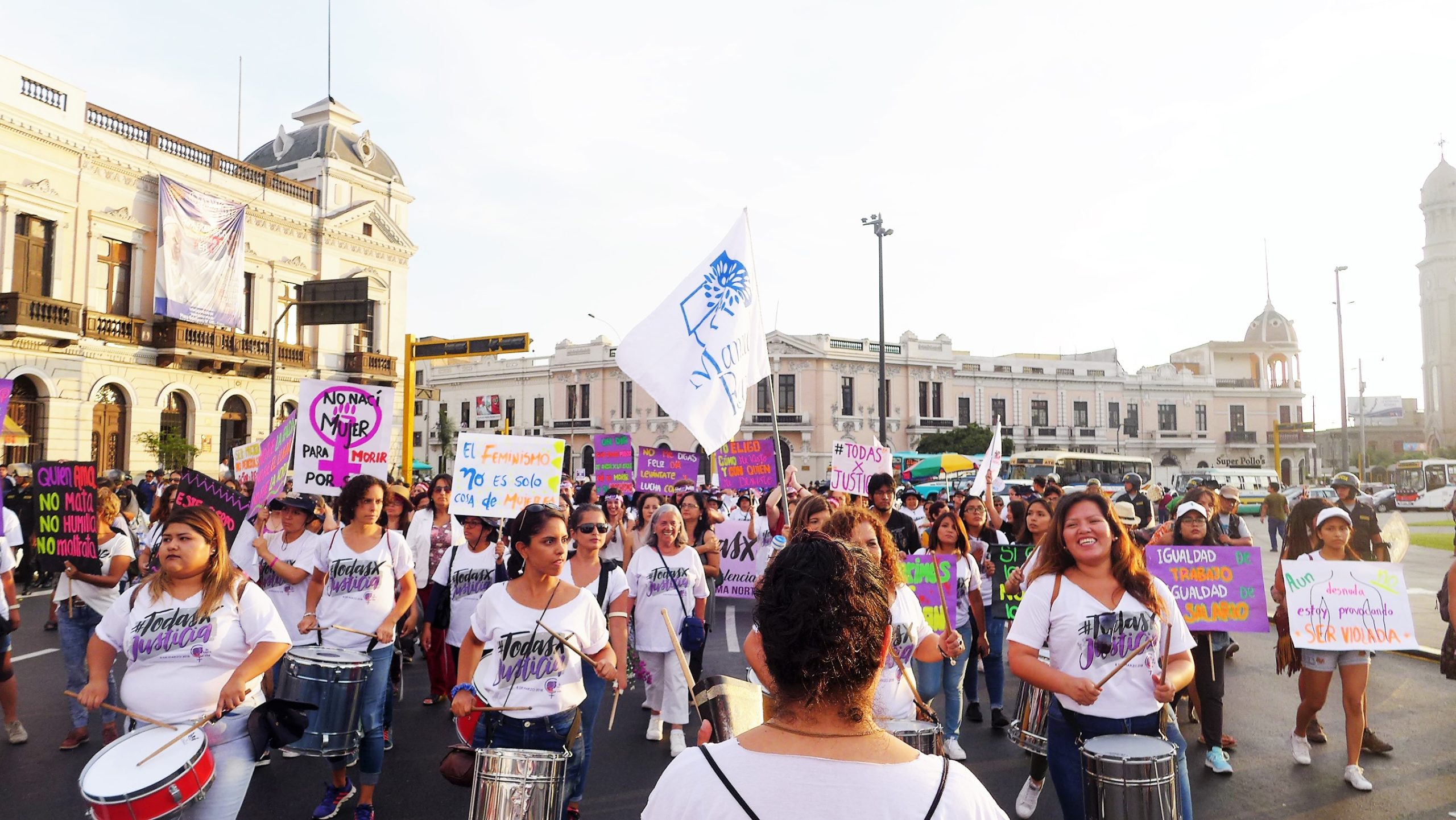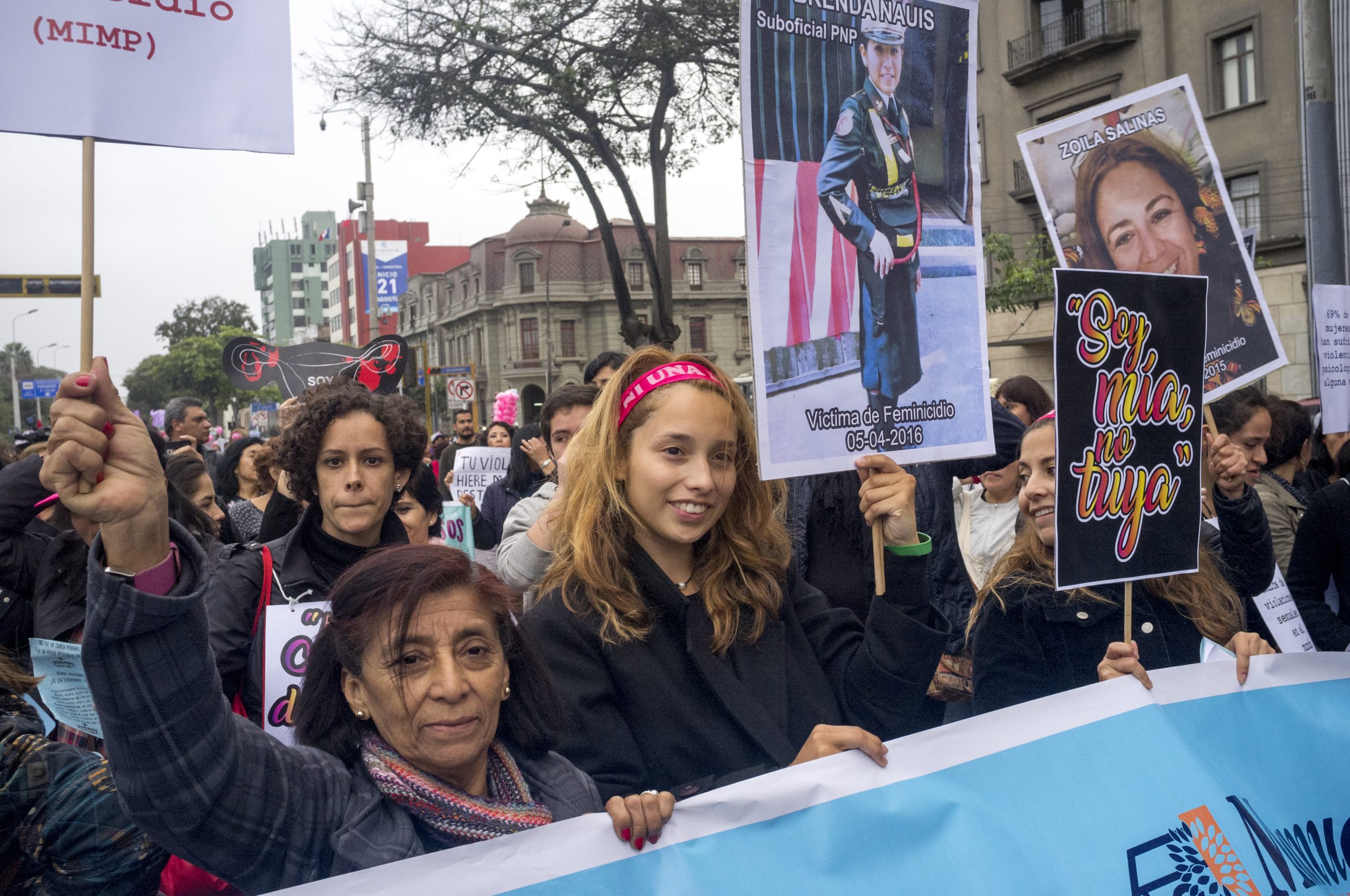Advancing women’s rights in Peru: ‘Together, all our voices are stronger’
Story

Women as a whole are disproportionately affected whenever any disaster strikes, and the coronavirus (COVID-19) is no exception. Women are more likely to be found in precarious forms of labour, to face difficult choices over income versus childcare, and to experience intimate partner violence. This is why Cuso continues to advocate for the rights of women and girls in Peru and around the world.
Susana Valerio knows first-hand the importance of women’s rights organizations in Peru. “I didn’t know I was being mistreated or that I had a chance of improving my life and the life of my kids,” she says.
When she connected with Movimiento Manuela Ramos (MMR)—an organization that focuses on ending violence against women, promoting sexual and reproductive health and rights, and increasing women’s participation in decision making—Susana learned there was an entire network ready to help.
According to a report from Statistics Peru, more than 68 per cent of women between the ages of 15 and 49 had experienced some form of gender-based violence in 2016. Unequal power relationships between men and women within families and communities, male-dominated socio-cultural stereotypes and a high tolerance of familial violence are all factors at play.
“In a patriarchal and macho society like the Peruvian one, feminist organizations are the ones with the courage to defy traditional roles, promote laws for women to have equal opportunities, denounce gender-based violence and encourage women to believe that—no matter your gender or identity—you can be whatever you want,” says Susana Galdós, founder of MMR and a member of Cuso International’s board of directors. “You have rights.”
To continue strengthening the national feminist movement, Cuso International is partnering with four Peruvian women’s organizations for the Women’s Voice and Leadership project.

Along with Manuela Ramos, Cuso is working with Estudio para la Defensa de los Derechos de la Mujer (DEMUS); Flora Tristán; and Organización Nacional de Mujeres Andinas y Amazonicas (ONAMIAP). The Canadian government is providing $5 million in funding over five years for the project.
“We are all advocating for the same issues, all working to advance the rights of women and girls,” says Cuso International CEO Glenn Mifflin. “This project brings together the top women’s organizations in the country. And when we come together, all our voices are stronger.”
Although there has been opposition to the feminist movement in Peru, the hard and persistent work of these organizations and others like them are leading to change; there is now legislation that makes ending gender-based violence one of Peru’s seven political priorities, the number of women’s centres have doubled and advertisements are required to be less sexist.
“This work is invaluable,” says Tania Guilbert, current Cuso volunteer at Manuela Ramos. “It gives more visibility to the feminist movement.”
The Women’s Voice and Leadership project will continue the work of changing societal and cultural norms about what is acceptable, addressing the inequities and disadvantages women face, ending gender-based violence and increasing women’s participation in decision-making.
“Working closely with other organizations, it is this support amongst each other that gives us the strength to achieve accomplishments and promote change,” says Carmen Espinoza, executive director of Manuela Ramos and former Cuso employee. “After years of hard and consistent work, our voice is being heard. Now it’s a matter of pride to be feminist in Peru.”